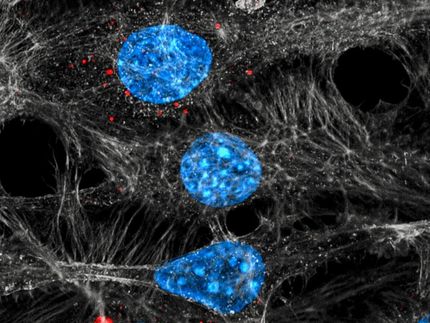Cytheris, Centre Léon Bérard and ImmunID announce initiation of clinical trial to evaluate combination regimen of IL-7 (CYT107) and XELODA (R) (capecitabine) in treatment of metastatic breast cancer
Cytheris SA, the Centre Léon Bérard and ImmunID Technologies SAS announced initiation of a Phase IIa clinical trial that will evaluate multiple combinations of recombinant human interleukin-7 (CYT107), the investigational multifunctional cytokine under development by Cytheris, and a chemotherapeutic agent, XELODA (R) (capecitabine, Roche/Genentech), in the treatment of metastatic breast cancer.
The trial is designed to explore the optimal schedule for delivery of CYT107 during standard capecitabine chemotherapy, with the aim of immune reconstitution and collection of preliminary data on the impact of CYT107 on severe hematological toxicity and tumor progression in second line metastatic breast cancer patients. The immunorestorative properties of IL‑7, which include its ability to provide T cells to attack any residual disease, are expected to have a significant impact on survival in this patient population, where a low CD4 T cell count associated with poor receptor diversity detected before initiation of chemotherapy is a known predictive factor indicating overall survival of less than six months compared to almost two years for non-lymphopenic patients.
Conducted as a collaborative effort of the Centre Léon Bérard (the study sponsor), ImmunID Technologies, and Cytheris, the study, known as ELYPSE-7, is designed to evaluate whether CYT107 treatment is able to correct lymphopenia post-chemotherapy in advanced cancer patients and whether the correction of this lymphopenia by restoration of the immune system will result in a broadening of the repertoire of T cells and a reduction in the risk of severe haematological toxicity, tumor progression and early death.
The study is based on many years of research conducted by the team of Jean-Yves Blay, MD, PhD, professor of medicine at the Université Claude Bernard, Lyon, and the current president of the European Organization for Research and Treatment of Cancer (EORTC).
“Lymphopenia (<1000 Lymphocytes/microliters) or CD4+ T cell lymphopenia (<450/microliters) detected prior to initiation of chemotherapy as well as Divpenia (R) (low diversity of the T cell repertoire) are known to be predictive factors for toxicity and death in patients with metastatic solid tumors. Correction of this condition through an immunotherapeutic approach would therefore represent a potential paradigm shift in the treatment of patients with various types of cancer,” commented Dr. Blay. “In the SEMTOF trial, which included a total of 70 metastatic breast cancer patients in first line treatment, a low T cell receptor (TCR) repertoire diversity (Divpenia (R), as defined and measured by ImmunID Technologies) was associated with a short overall survival of up to six months. Median survival of severely divpenic patients was less than six months, compared to more than 22 months for the remaining patients who were not in this severely lymphopenic state. The outcome of the ELYPSE-7 study is thus expected to have significant implications for overall survival and tumor progression in patients with advanced cancers, including ovarian cancer, metastatic breast cancer, non-Hodgkin lymphoma, and sarcoma.”
Qualitative and quantitative alterations of local and circulating immune cells have been identified as playing an important role in breast cancer progression. In a series of studies including more than 3000 patients, Dr. Blay’s team has shown that lymphopenia is found in 20-25 per cent of patients with advanced cancers, including 20 per cent of untreated patients with metastatic breast cancer. In a large series of patients it was observed that lymphopenia is associated with a 20 per cent and 50 per cent risk of early death at one and three months and that T cell CD4 lymphopenia is also an independent risk factor for early death and toxicity in these patients.
Most read news
Organizations
Other news from the department research and development

Get the life science industry in your inbox
By submitting this form you agree that LUMITOS AG will send you the newsletter(s) selected above by email. Your data will not be passed on to third parties. Your data will be stored and processed in accordance with our data protection regulations. LUMITOS may contact you by email for the purpose of advertising or market and opinion surveys. You can revoke your consent at any time without giving reasons to LUMITOS AG, Ernst-Augustin-Str. 2, 12489 Berlin, Germany or by e-mail at revoke@lumitos.com with effect for the future. In addition, each email contains a link to unsubscribe from the corresponding newsletter.




















































